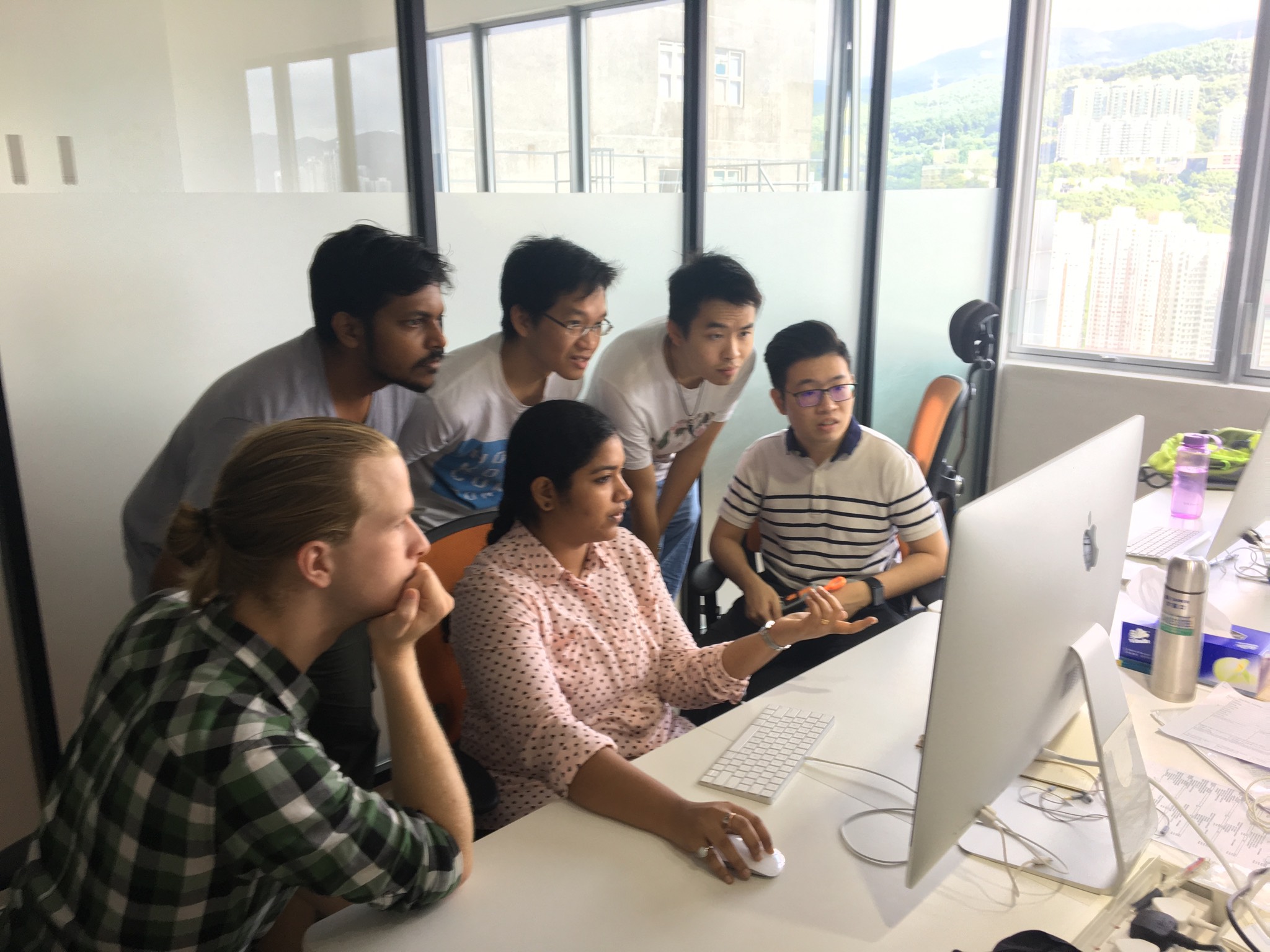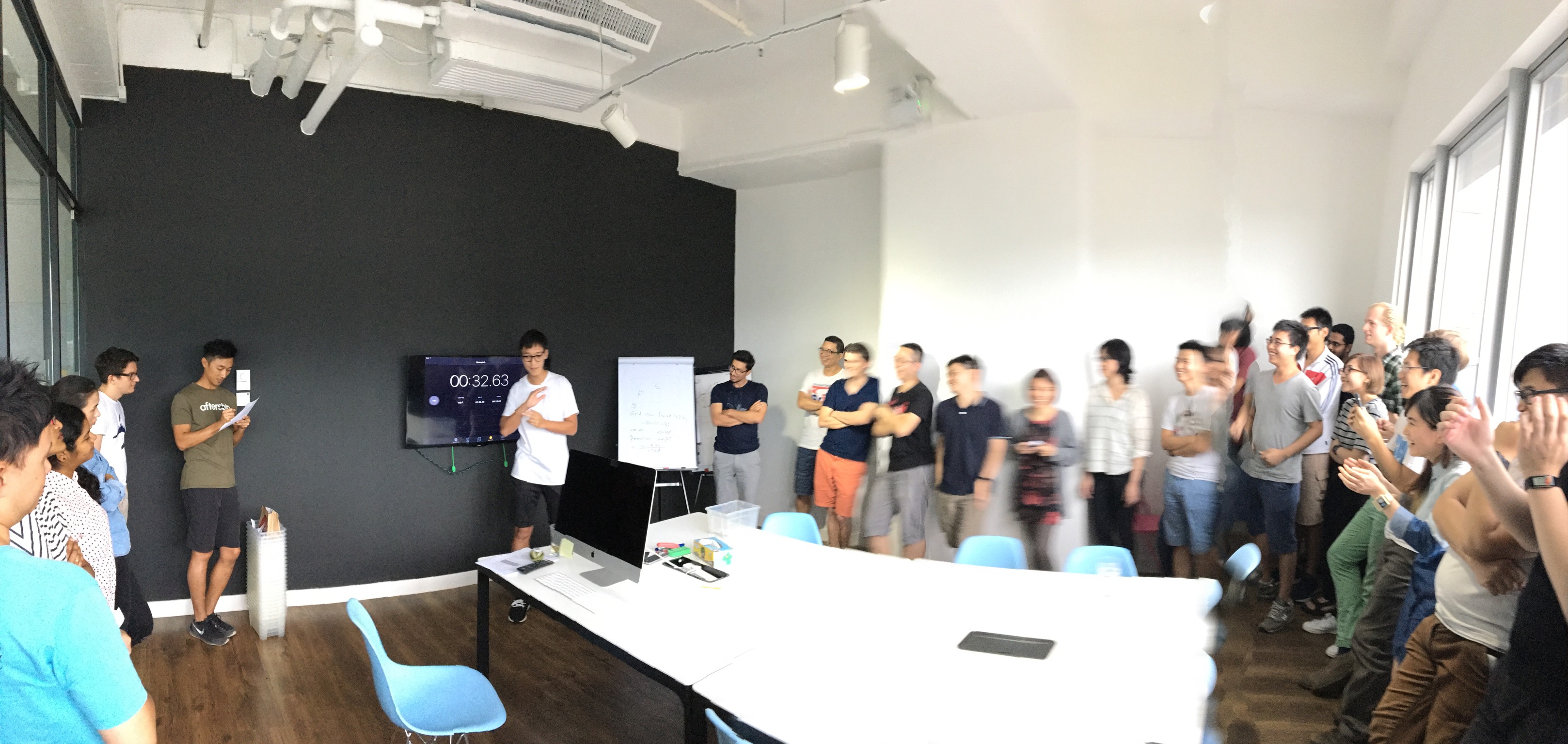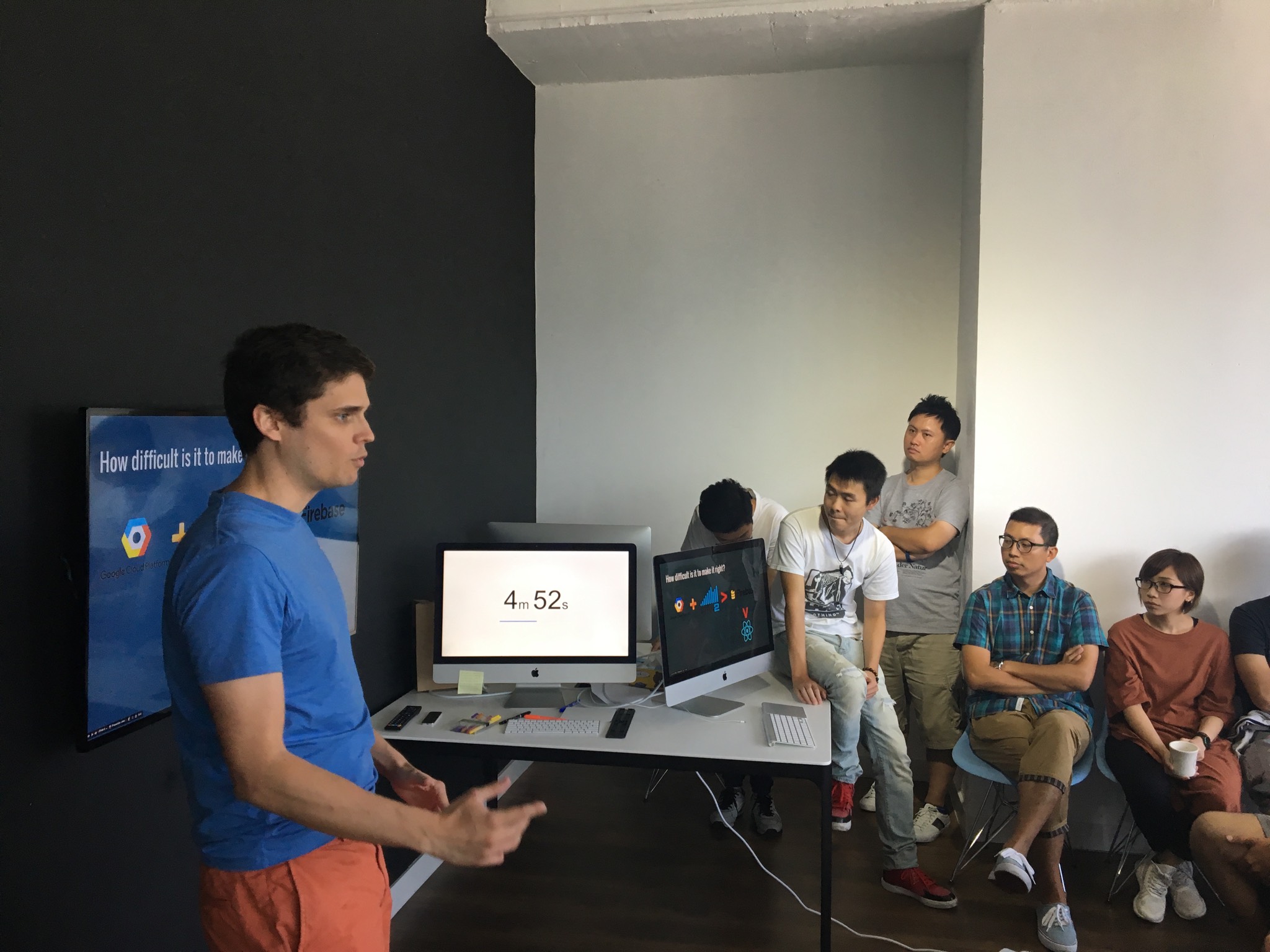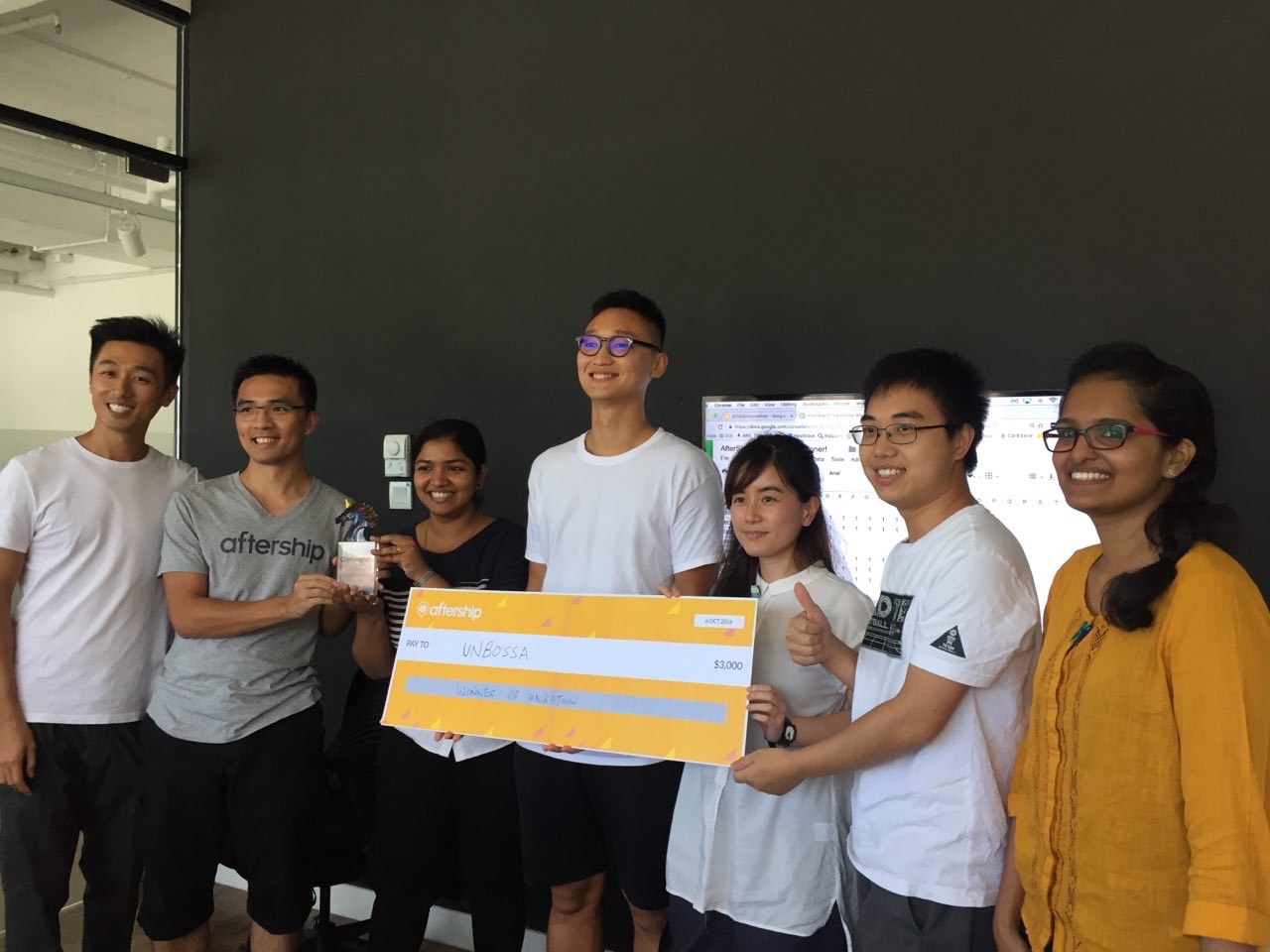
Last week, we organised an internal hackathon during three days and a half in our office. Most of you might know what a hackathon is.
Hackathon: an event, lasting several days, in which a large number of people meet to engage in collaborative computer programming.
Ours was a bit different though. Rules were simple. Pitch any idea related to AfterShip or Postmen. Convince your teammates to join your team. Hack. Demo your product. Win.
Two criteria mattered:
- Execution
- Business Model / RoI
This hackathon gave us the opportunity to learn a few interesting things:
- know more about customers pain points
- AfterShip roadmap
- how to pitch and present business ideas
There are plenty of reasons to take part in a hackathon. One is contributing to the business of the company. Another is going out of your comfort zone. This was a great opportunity to do something different. To work with other teammates at different roles.

The team pitched a total of 19 ideas! Among them, 6 ideas got selected. We introduce them to you below.

Postage Calculator
The idea of Postage Calculator came up with this goal in mind: how can we help promote our shipping API [Postmen](http://www.postmen.com" target="_blank)? The team decided to go for a tool anyone could use to know shipping rates based on Postmen database.
Choosing the right courier at the best rate depending on the size of your package would be easy.
Service Discovery
Like many good ideas, this one came up with a simple pain point some of the developers at AfterShip were facing. At AfterShip, we are building many micro-services and use many different stacks. Communication of key information can become a mess.
Service Discovery makes the process of finding and communicating between the stacks much easier. ()
AfterShip Galactica
AfterShip Galactica or Galactic Pirates () was by far the most original idea during the pitching session. It all came down to how can we use the time we have, to create an addictive game in a sci-fi environment?
The goals for this game were to showcase the skills of our developers, and attract potential new developers to work for AfterShip.
ServerHub
AfterShip products are running across hundreds of servers in different clouds. It’s always a trouble for developers to find the right one from machine ocean. Another issue is to keep all the access keys safe so that we can use it right away. It’s tedious, repetitive, and time consuming. Yet, it’s required in daily bug fixing, deployment and testing that we cannot avoid.

So Server Hub came up as a need for a central place to manage and update all the servers. It's a web app to grasp a view of all server status, find the target server & processes inside. ServerHub would increase the efficiency of developers and support product management. While increasing security all along. ()
CheckIt
AfterShip is a shipment tracking API. Online merchants can notify their customers about delivery updates to their customers. But what about businesses with self-delivery services? ̛They can't use AfterShip although some would love to. Imagine a flower shop for instance, or a restaurant. Today, they can't notify their customers about the delivery. That's what CheckIt is aiming at.
Despite an impressive execution and the potential of the project, CheckIt finished as a very close runner-up ()
and the winner... Unbossa!
Ever since the pitching session, Unbossa felt like an idea with good potential. It all started with this observation. In the current market, we can only have product reviews after we use the products. Not before.
There are a lot of customers unhappy after their purchase. Why? Because of the difference between the online description of the product they bought and the actual one they received
Unbossa then would provide a centralised platform for the post-purchase experience. A platform for the end users to get a first-hand experience of the products with unboxing reviews ()

Lessons Learned
Lesson 1: 90-second pitch is freakin' hard. You need to train beforehand. To convince people to vote for your idea and grab their attention span is not an easy task. The tone of your voice, your body language, the words you choose. Every details matter.
Lesson 2: Out of the comfort zone we go. Learning new skills and working with different teammates. When you grow fast it can be a challenge to maintain everyone in the same boat.
Lesson 3: Always listen to your users and learn from them. This hackathon started with everyone replying to customer enquiries. Two things happened. Developers, both back-end and front-end, had to interact with end-users. And it helped them to improve communication skills, as in how to write to users in a clear way.
We hope to organise a second hackathon soon and encourage any startups in Hong Kong to do the same.

